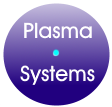
The work of the OQSI is dedicated to the elaboration and dissemination of recommendations for quality standards, methods and procedures to achieve economic, effective and efficient management and outcomes for:
OQSI takes into account all known existing recommendations, standards and methods specified by the many private, national and international organizations. OQSI's effort is directed towards the analysis and resolution of the range of different requirements for projects and policies in various sectors in order to achieve a coherence between practical requirements and recommendations. The scope of our work includes:
ISO standards provide a basic reference framework for building processes and projects through the general process approach (ISO_9000) and quality management (ISO_9002). We maintain a series of recommendations on implementation methodologies for Project Portfolio Management (OQSI_PPM series). We work closely with SEEL-Systems Engineering Economics Lab who provide advice and applied development services related to: Our work includes systems software design standards such as ECMA_262 and ISO/IEC_16262 and other active web operational standards (W3) whose content and capabilities advance according to agreed international agreement. All decision analysis models used in process and project design should be transparent and enable the full deployment of the state-of-the-art range of logical, mathematical and operations research algorithms used for goal seeking and optimization including reiterative simulations to identify options such as the Monte-Carlo, SIMPLEX, Markov chains and other methods. These methodologies are grouped under OQSI_DAM and include optimization based on simulation for the analysis of output quality, process technologies and techniques, resources allocation, economic and financial analysis, environmental and social impact assessment. A basic process operational capacity test includes OQSI_pipeline.  We are developing evolving OQSI standards for Data Reference Models (OQSI_DRM) for application data sets, logical reporting standards including for monitoring and evaluation. Recommendations and guidelines for specifying required data precision estimates applying the Locational State method (OQSI_LSM series) are used to fine tune Real Time Audit systems design (OQSI_RTA). This enables on-demand analysis and reporting in real time. This work has given rise to specific practical issues of analysis related to large project porfolios and donor management of multi-beneficiary multi-project situations. The resolution of these specific types of problem are handled by a unit established in early 2021 at Plamsa.Systems.  We maintain an OQSI series that clarifies the distinction between tacit and explicit knowledge contributions to operations and costings. We provide guidelines on requirements for information and knowledge delivery using IT as well as embedding and accumulation in human operators. We are developing OQSI standards such as the Personal Professional Contributions Record (PPCR) based on the personal Accumulog concept (accumulog.org). We are developing evolving OQSI standards to interface with the requirements of technologies and analytical methods applied to decision making in support of economic, financial and sustainability techniques including fintech. We monitor and assess all evaluation criteria recommendations by other organizations and currently the OECD DAC criteria cover most requirements. |
